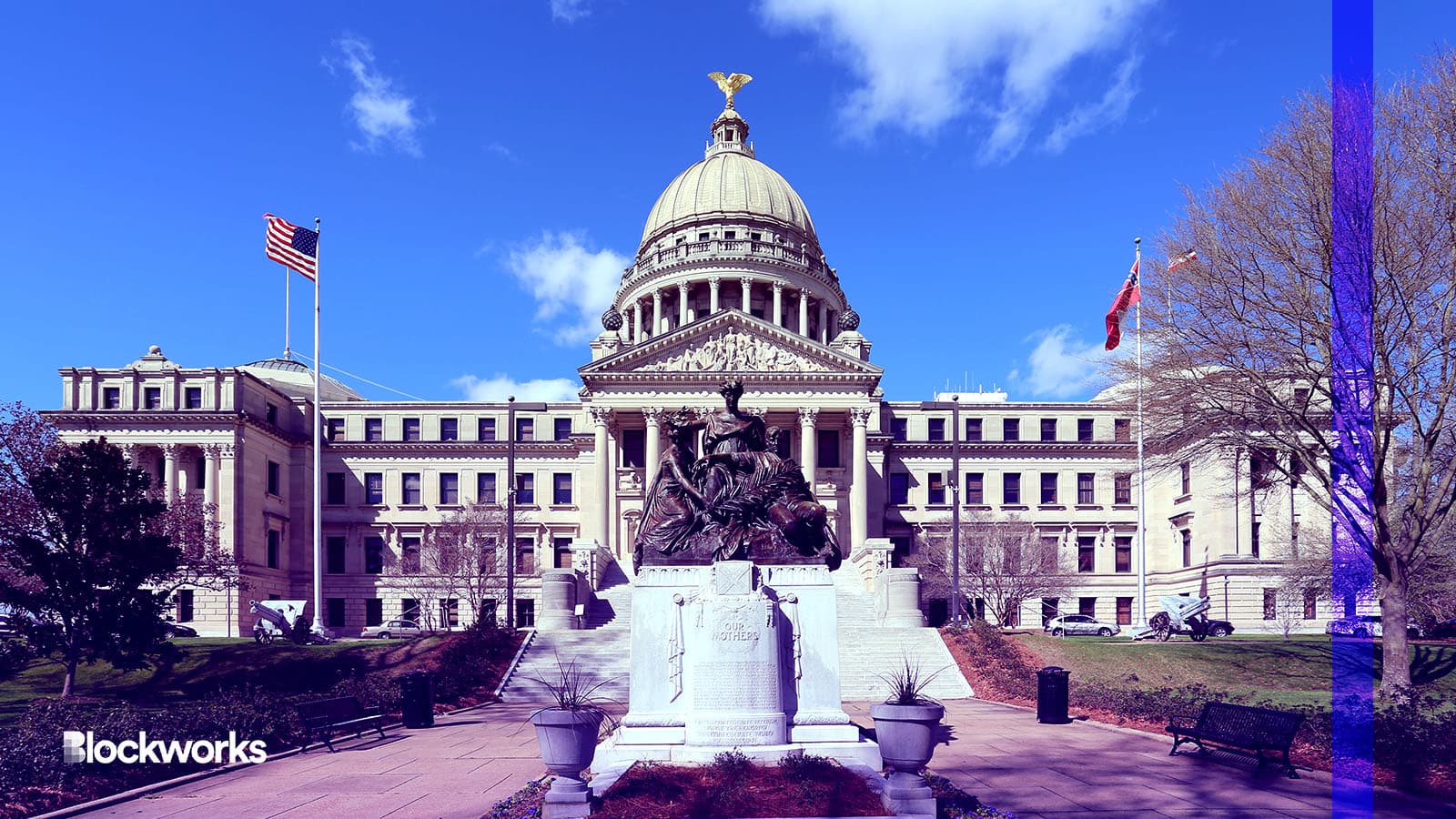Mississippi Bill Legalizes Bitcoin Mining in Residential and Industrial Areas
The state’s mining bill, set to become effective July 1, protects miners from being considered as money transmitters

Source: Shutterstock / Katherine Welles, modified by Blockworks
Mississippi Senate lawmakers have passed a bill that makes cryptoasset mining legal and protects miners from biased energy rates.
Senator Josh Harkins introduced the bill to the House, stating that digital asset mining has generated thousands of job opportunities for the state and provided billions in positive economic value for companies.
Since China’s 2021 ban on digital asset mining, the industry has seen significant growth in the US but faced regulatory challenges, he noted.
According to the senator, digital asset mining presents an opportunity to stabilize the power grid and generate revenue for infrastructure projects across Mississippi.
The bill legalizes running a node or series of nodes for the purpose of mining at private residences or industrial areas. It also prohibits imposing limits on noise generated from home digital asset mining beyond limits already in place for other forms of sound pollution.
Modifications to the zoning of a digital asset mining business too won’t be allowed without appropriate notice, and in case this is done, the relevant business will have the right to appeal the change.
The state’s Public Service Commission, which regulates utilities like electricity and gas, won’t be permitted to establish discriminatory rate schedules for such businesses, meaning the same electricity rates for other industrial uses should be applied.
Electricity rates in Mississippi are nearly 16% lower than the US average rate, and it is the 16th best priced state in the nation, according to data from Find Energy. Washington, Utah and Idaho are among other states with cheaper rates.
Persons or entities engaged in any digital asset mining business in the state will be exempted from holding a “money transmitter” status, suggesting that they wouldn’t have to register with the Financial Crimes Enforcement Network (FinCEN).
Some states have taken a more skeptical approach. For instance, New York signed a mining moratorium law in November, which placed a two-year ban on proof-of-work mining in the state.
The Mississippi bill is one of the more positive ones with regard to cryptoasset mining, and could take effect on July 1 if approved by House members and signed by the state’s governor, Tate Reeves.
Get the news in your inbox. Explore Blockworks newsletters:
- The Breakdown: Decoding crypto and the markets. Daily.
- 0xResearch: Alpha in your inbox. Think like an analyst.






